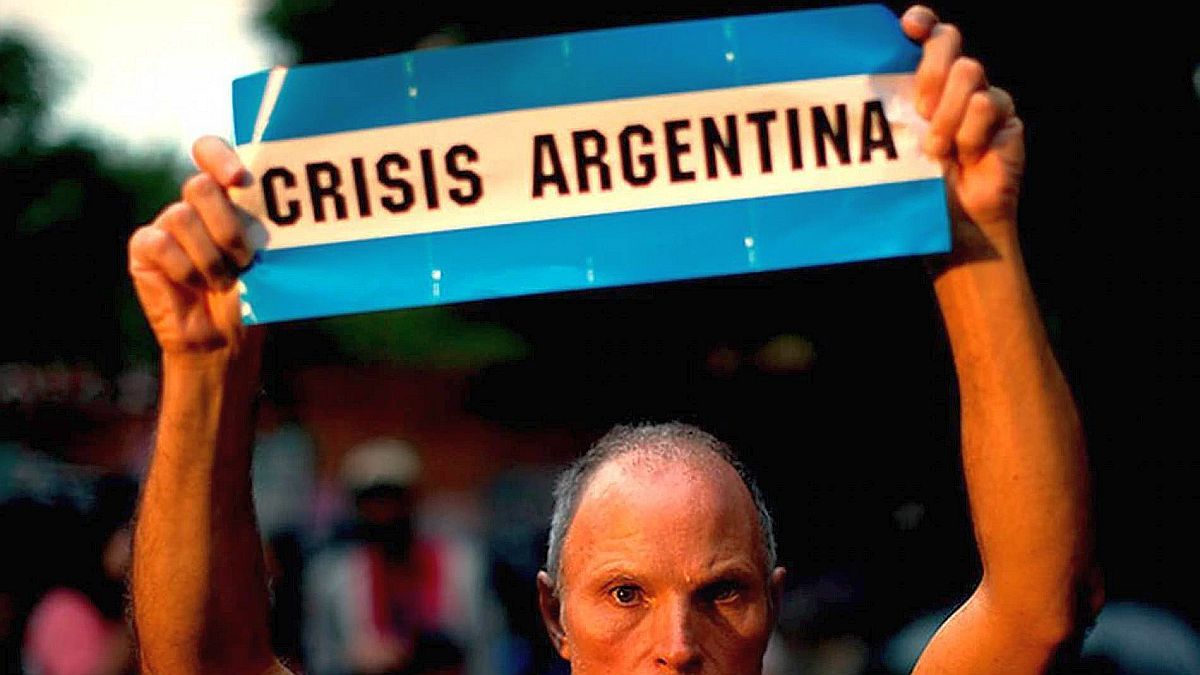There will also be talks, presentations and a Fanzine workshop that requires prior registration at http://conti.derhuman.jus.gov.ar/2021/12/impresiones-de-la-crisis.php. All with free admission.
“In the context of this collective exhibition, we believed that there could be a space to think about books, publishers and independent fairs that sprang up in multiple ways as a consequence of these events and the rethinking that they brought with them”, explains Martín Monsalve, from the Conti’s literature area, one of the organizers of the initiative together with Marilina Winik and Matías Reck, from Hekht Libros and Milena Caserola respectively.
In the years after the days that ended with the government of Fernando de la Rúa and in which the repression left 38 dead, a large number of independent and self-managed publishers emerged that, according to Monsalve, “make up an unavoidable and growing part of the panorama. editorial in our country “.
“Next Saturday’s fair aims to account for this phenomenon and that is why we have summoned publishers that we consider to be a fundamental part of this generation, which has been publishing high-quality books outside of traditional commercial circuits,” he says.
Winik points out that they were interested in “inviting publishers and authors to whom 2001 something would challenge them in their practice of making books”, since for them “it was founding” and they understand that “for many too, that’s why more than a fair for selling books is a meeting to exchange experiences “.
Both Reck and Winik recognize themselves as “an active part of a generation of editors and publishers that grew out of the experiences they call the” post 2001 “:” We always consider that doing the FLIA (Independent and Alternative Book Fair) was our school. In parallel to the construction of our publishing houses, we were part of other experiments that we were developing, such as the collective stand at the Buenos Aires International Book Fair, ‘Todo Libro es Político’, where we began to activate other links within the official fair, but we also participate in other activities and fairs that are part of the consolidated cultural circuit in the city of Buenos Aires and the rest of the country and the world, “says Reck.
During the day there will be two guest bookstores, La Libre and Mandolina Libros, which have specialized in this type of publications, and at 6 pm there will be a guided tour by artists from the exhibition, such as José Luis Meirás and Lucía Berra from Contraimagen.
At 3.30 pm, Winik and Reck will talk with the curators of “19 y 20”, Loreto Garin and Natalia Revale, with the coordination of Diego Skliar; while at 4:00 p.m. Mabel Bellucchi and Gabriela Mitidieri will talk about neighborhood assemblies: balance and memory of a movement of collective resistance. At the foot of 2001, with Sol Fantin as moderator.
Vicente Zito Lema will meet at 5 pm with the interpretation of “We must kill the poor”, a text written from the Avellaneda massacre in homage to Darío Santillán and Maximiliano Kosteki. He will be accompanied by the pianist Alicia Mazzieri.
There will also be space for books that addressed 2001 from fiction, since at 5.30 p.m. Anahí Ferreyra, author of the novel “Magic and Loss”, and Juan Guinot, author of the novel “33 rpm”, will share an exchange about their work with the intervention of María Laura Vázquez, author of the book “Era tiempo”.
One of the projects that will take place in this fair is the MULI (Living Museum of Independent Books) that will participate, at 4.30 pm, with a clipping of how books were made in those years after 2001, which dialogues with the exhibition and makes visible forms of production from an aesthetic of underground poetics that had a very strong presence in those years.
Both the exhibition “19 and 20 – Archives, works and actions that broke into the visual narrative of the 2001 crisis” and this Saturday’s fair propose to motorize the collective memory and that task, undertaken from the Ex ESMA, led them to think “What has been the journey of neoliberalism, indebtedness and institutional violence in our country”, says Lorena Bossi, coordinator of the Conti visual arts area.
“Counting in connection with other recent pasts allows us to reflect in a context where we observe a dangerous emergency of the rights. The exhibition makes us see the social protests of 19 and 20 as a very powerful emerging that we want to rescue and give value in a space like the Conti “, he affirms.
The exhibition was inaugurated a month ago and the director of the Conti, Lola Berthet, says that it is being very visited, especially by young people and students: “It is very important for us that the new generations, through art and memory, can be questioned to find out what happened and in what way art and culture were present in historical events like this one “.
In this sense, he adds that “various cultural and artistic expressions have merged into social organizations, the impact of the crisis has been fierce in every way, but it was culture, artistic expressions and popular ingenuity that was able to give a answer, through organization and struggle. “
Twenty years after that December, how do you remember that editorial scene and how is the current one? Winik affirms that “the publishing concentration of the 2000s accentuated the ways of making books from a logic governed almost exclusively by the market, the best sellers were bought in supermarkets and the circuits were limited to mass and passive marketing where editorial marketing was put on sale and fast consumption “.
“The literary circuit was also regulated by competitions, somehow 2001 breaks that logic and implants the ‘do it yourself’, which is disseminated as an aesthetic-political slogan. It mobilized us in the sense of being able to unveil the magic formula : since, unlike other cultural industries, ‘making books is always a collective fact’ “, reflects Reck.
For the two publishers, making books also became fairs, presentations, finding themselves mixed in a climate of assembly participation. “That is why, 20 years after 2001, we have to speak of an editorial field that is the object of study by researchers, students and curious people from the world of independent books”, they agree.
Regarding the title of the fair, “Make pops / make books”, the editor of Hekht explains that in 2011 they founded the association Creating independent and artistic networks (CRIA) with art and culture collectives with whom they had met in 2001.
“Our motto was always from ‘doing’ and then we named the way of creating ‘the pedagogies of doing’. Doing is what moves us, what makes us reflect or think is always in action. ‘Making outburst’ has to do with that memory process where we understood that 2001 was not only an aesthetic development but a political event, a complex process that marked recent Argentine history, a break between a way of seeing and understanding politics that put us in a situation autonomous “, develops.
Meanwhile Reck adds that the post-2001 years, from the pedagogies of doing, meant for them “a performative doing, in context.” “‘Making books’ is our way of constructing discourses, meanings, views, catalogs, events, links and thus developing from our practices ways of changing the world”, he synthesizes.
Twenty years after that 2001, the reception that the exhibition had in the month that it has been open shows that “the interest in what happened has not been exhausted and, in this sense, it has made it clear that it continues to be a historical fact about which it continues to be discussed and debated “, emphasizes Bossi.
“We believe that this is due to the fact that the exhibition has questioned an entire generation. In the documentary ‘327 notebooks’ that Andrés Di Tella dedicates to Ricardo Piglia, the latter points out that there is a moment in the life of each person in which the History – with a capital letter – enters our lives. This was what happened for a whole generation with the crisis at the end of 2001 “, he emphasizes.
Source From: Ambito
David William is a talented author who has made a name for himself in the world of writing. He is a professional author who writes on a wide range of topics, from general interest to opinion news. David is currently working as a writer at 24 hours worlds where he brings his unique perspective and in-depth research to his articles, making them both informative and engaging.




